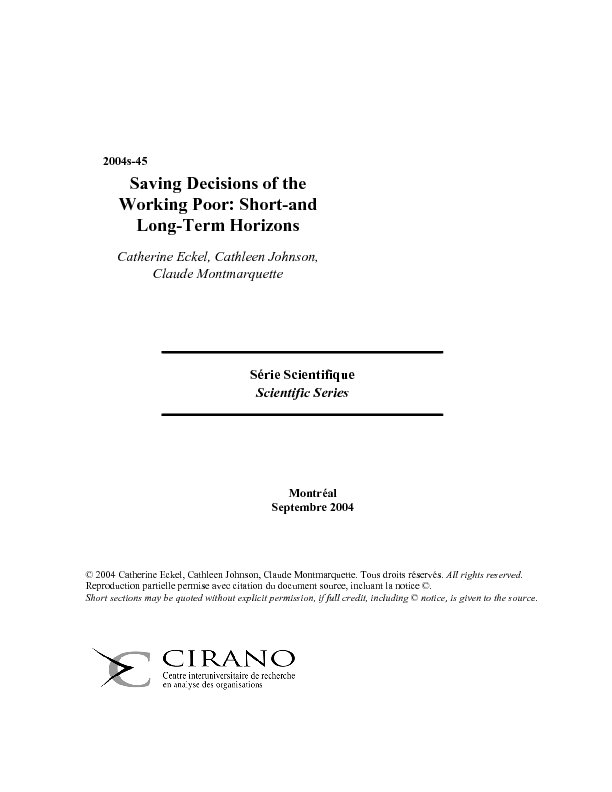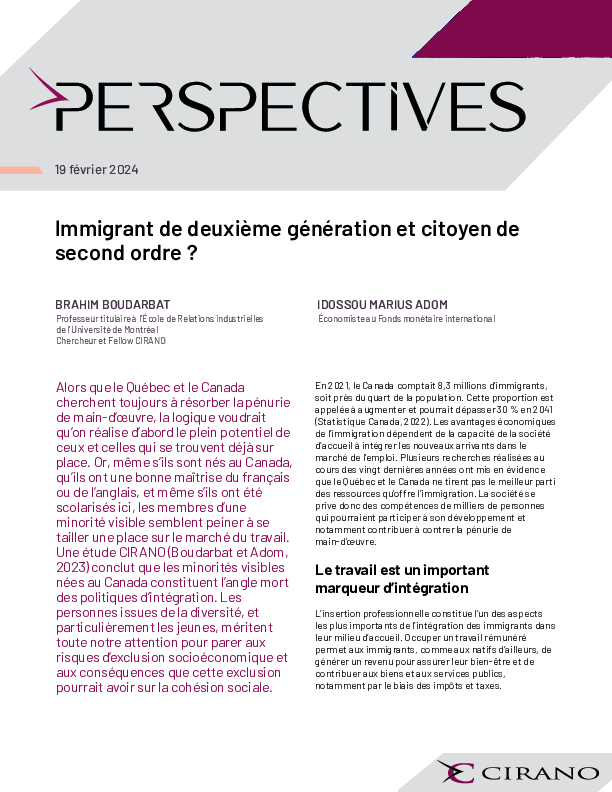Saving Decisions of the Working Poor: Short-and Long-Term Horizons
We explore the predictive capacity of short-horizon time preference decisions for long-horizon investment decisions. We use experimental evidence from a sample of Canadian working poor. Each subject made a set of decisions trading off present and future amounts of money. Decisions involved both short and long time horizons, with stakes ranging up to six hundred dollars. Short horizon preference decisions do well in predicting the long-horizon investment decisions. These short horizon questions are much less expensive to administer but yield much higher estimated discount rates. We find no evidence that the present-biased preference measures generated from the short-horizon time preference decisions indicate any bias in long-term investment decisions. We also show that individuals are heterogeneous with respect to discount rates generated by short-horizon time preference decisions and long-horizon time preference decisions.
[ - ]




